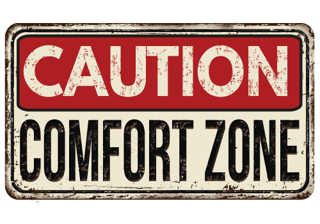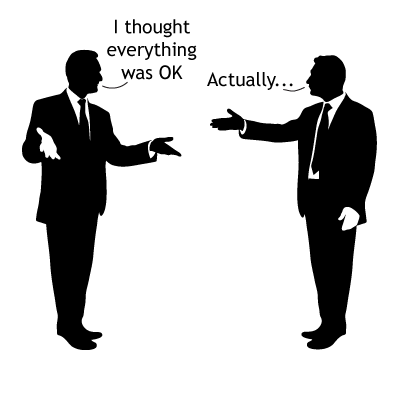5 min read
4 Critical Election Mistakes Provide Lessons to Help Connect You with Your Customer
 Ross Weinstein
Monday November 21, 2016
Ross Weinstein
Monday November 21, 2016

For many of us the election result provided a confusing end to what was a very emotionally charged campaign. When I awoke on Wednesday morning still trying to sort out the surprise result in my head, I couldn't help but reflect upon what was missed. This was an election where almost all of the media and most surrogates in both campaigns believed that Hillary's victory was all but a sure thing. So what happened?
Still trying to put it all together, I logged into my 8:30AM daily client advocacy video conference. This meeting consists of 12 cross-functional Voicebrook employees all working to find solutions that ensure client success. On this day I was running a few minutes late and I joined in the middle of a conversation about the result. All eyes turned to me, and I was put on the spot about what we just witnessed. Channeling skills I learned from watching all three debates, I "pivoted" to answer the question in a way that would not alienate team members and would provide a positive segue to the meeting we were about to begin.

1. Be Brave and Step Out of Your Comfort Zone
It is human nature to avoid conflict and to seek the comfort of ideas and beliefs that support your world view. This scenario is safe and free from pain. Likewise, we all want to be liked, wanted, and desired.
As businesses we all want our companies and products to be the choice of the markets that we serve. During the election we did this by watching news networks and reading articles that supported our beliefs. In business we do this by listening disproportionately to those customers who are our biggest advocates. The problem is that if you only listen to those who share your opinions (polls, media, customers, employees, etc.) you will create a blind spot that opens you up to the unexpected.
During the election this represented lost strategic opportunity to change for the Clinton campaign and possibly some apathy by those who would ordinarily have supported her. In business this can lead to a customer entertaining an opportunity with another Pathology Laboratory or in our case an alternative reporting solution. Welcome the opportunity to sit with your biggest detractors and find out why your solution doesn't meet their needs. It will provide an opportunity to not only win them over, but to come up with solutions to address potential clients who share their views in the future.
2. Seek Out the Hidden Client
One of the biggest takeaways for me was the "Hidden Trump Voter." Kellyanne Conway was beating this drum after every positive Clinton poll result and very few people understood or bought into the idea. The reality is that they did exist. These were non-vocal, non-traditional working middle class voters who were unhappy with the status quo.
In our businesses these are the clients or users of our products who we don't ordinarily hear from and we "assume" everything is OK with them. Not entirely satisfied, and left exposed to the message of the people in the first group, these people can make or break the decision to stick with your product or candidate when a viable alternative exists. They may not always have the time or the energy to reach out when they have a frustration with your product or service, but you can't put a tick next to their name as satisfied simply because they don't call support or let you know when they have an issue. It is important to identify this group and make sure they hear from you on a regular basis so that their needs are being addressed. Do this, and the relationship you develop with them will be valued when tough decisions need to be made.

3. Don't Ignore Your Base
This one should be pretty simple and obvious. If Hillary had spent just a little more time in the rust belt with voters who she expected would vote her way, we would be talking about a very different outcome. At this point in time that margin to win Pennsylvania, Wisconsin, and Michigan was simply 115,000 voters. This means that if just 60,000 of them changed their vote she would have had enough votes and electoral votes to win the election.
Now think about that as it relates to your business. If you knew the difference between selecting or sticking with your product could come down to just re-energizing that one person who has traditionally been receptive of your product but you haven't heard from them in awhile, would you spend some time giving them that attention? In hindsight, of course you would. We now have hindsight. You need to check in with everyone to know where they stand.
4. Did You Properly Identify the Pain
One of the biggest takeaway's for me is that even if you think you know what is right for your customer, that may not be the pain that your customer is trying to solve. In the case of the election, Hillary's team put a lot of weight into social issues, defending immigration policies, candidate morality, and environmental and renewable energy policy. Yes, those are important to many people, but the problem is that for many voters those were considered nice to have's, but they did not address their immediate critical pain...availability of middle class jobs. In fact, in many cases those platforms were considered as barriers to making those jobs come back.

To illustrate this, I recently spoke to one of my clients and we talked about including digital images in a diagnostic report. The idea was sold to them by a vendor citing obvious value add for the Pathologists product to their referring physician. They began to implement this in all of their diagnostic reports. The result was not what was expected. Referring physicians who used these reports to discuss diagnoses with patients found themselves spending time being asked what certain images meant. Since they were not specialists, sometimes that was difficult to explain and caused them some discomfort. In turn, the referring physician had to reach out to the Pathologists to discuss the images, and Pathologists and referring physicians found themselves being less productive because now they had to spend more time discussing an image that did not impact an outcome and was not a billable event.
While not an exact parallel I hope this illustrates the point. Sometimes things that seem to make obvious sense to you, do not wind up making obvious sense to the people who are consuming your message or solution. Make sure you understand what is really painful to your customer and what they value before you provide them with things that they do not perceive they need, and worse could make their lives more difficult. This can usually be measured by what they would be willing to pay for. In Hillary's case that currency was a vote.
In conclusion, often times it is easier to look at external situations in order to model internal solutions. When you are less vested in the outcome it is easier to suggest what you should be doing without personalizing fault or championing something that you have ownership in that is no longer working. On Friday most employees at Voicebrook got together for a Town Hall meeting to do just that. We spent about an hour looking at the election and tried to determine how we can apply lessons learned to help our clients. We came up with about 10 more different ways that the election paralleled our business. I encourage everyone to do the same. The customer is the most important asset that all of us have as businesses. We should constantly be seeking ways to improve what we provide them by better understanding their needs.
How can we meet your needs? Let us know.


